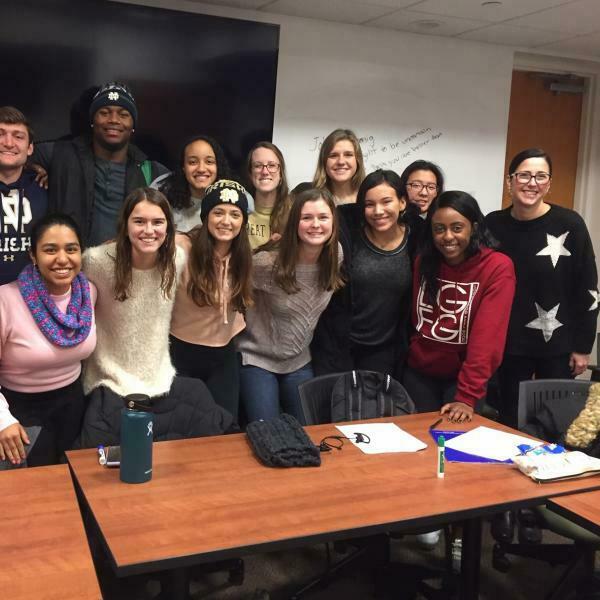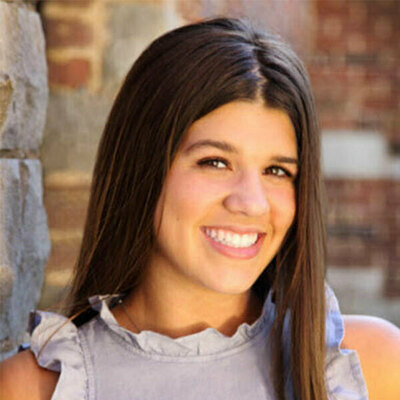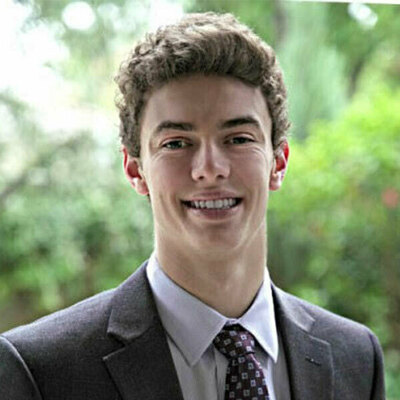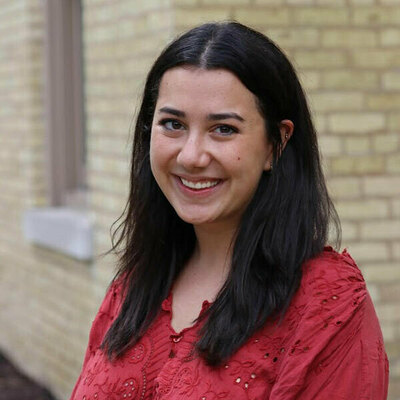
If you're interested in education and its role in society, check out Notre Dame's Education, Schooling, and Society (ESS) minor. This unique program is offered through the College of Arts and Letters in partnership with the Institute of Educational Initiatives.
ESS’s primary goal is to help students acquire diverse perspectives on important questions in education.
Program director and professor of psychology Nicole McNeil says the program asks, “What's more important than education?" It presents us with a paradox, she says. "[Education] holds so much potential for erasing societal inequality, but people in power continually choose to structure it to increase social inequality instead. Why is that, and how can we change it? What is even the purpose of education?"
These are the kinds of big questions ESS students and faculty ask, says McNeil. They are topics that inspire investigation and collaboration.
"I have loved working with ESS students and faculty so much because they are mission-driven. You'd be hard pressed to find an academic unit on campus who is more invested in building relationships with and collaborating with education practitioners in mutually beneficial and sustaining ways," says McNeil.
When asked what is unique about ESS, McNeil says it's not just the issues being explore, but the people who are involved. "We have diverse students from across campus who are curious and passionate about education, schooling, and society; we have world-class faculty who provide best practice instruction and strive for ongoing, regular, personal, professional mentorship of our undergraduates; and we have awesome community partners who are willing to work with our students to solve pressing problems in their schools and organizations."
Together, those people become a team with the same goal: promoting access to high-quality learning environments for all children.
The minor consists of one introductory course, three elective classes, and a senior capstone research project. Through this coursework, the program educates students to serve as advocates for children, especially those in poverty, and to critically analyze issues in education.
We asked three students about their experiences in the ESS minor:

Mary Claire Lewis ’22
Major(s): Psychology and theology
Minor(s): Education, Schooling, and Society
What has been your favorite ESS course so far and why?
It is so hard to choose a favorite, as I have thoroughly enjoyed every single ESS class I’ve taken. I’d have to say that my all-time favorite course would be Educational Law and Policy with Professor John Schoenig in the fall of 2020. During this class, I absolutely fell in love with the inner workings of the legal system, particularly as they relate to education.
Employing real educational law cases as the basis for our understanding, the class forced me to analyze our educational system with a critical lens and question the effectiveness of our policies. The class truly lit a fire inside of me, and it has pushed me to pursue law school after I complete my time with ACE.
In terms of my current favorite ESS course, I am wholeheartedly enjoying Educational Psychology with Professor Andrea Christensen. Dr. Christensen has blended two of my concentrations, psychology and education, together in an engaging environment that is actively shaping me into a better teacher.
Analyzing the psychology and research behind how children learn has helped correct a lot of my personal misconceptions about learning, and I am so blessed to receive this perspective before stepping into the classroom!
What kind of work do you hope to do after graduation? And how does ESS play into it?
I have committed to serving with Notre Dame’s ACE [Alliance for Catholic Education] program after graduation, and ESS is the main reason why my “yes” to teaching after graduation is so emphatic! Through ESS, I've been able to explore the multitude of ways that education can impact students' lives, whether in specific approaches to mathematical instruction, via law and policy, or in life outside the classroom.
I've garnered an appreciation for the education system as a whole, but feel as though I cannot fully understand it without serving children at the forefront of a classroom and seeing the direct impact of macro and meso-level decisions.
Furthermore, through tutoring in local elementary schools with ESS, I've had a taste of the joy that teaching can bring, and it's something I want to experience further. I am passionate about educational equity, and truly believe that every child is entitled to a great education. ESS has instilled in me a passion for justice, equity, and providing each child with the champion that they deserve.

Reynold Hamar ’22
Major(s): Finance
Minor(s): Catholic Social Tradition; Education, Schooling, and Society
What has been your favorite ESS course so far and why?
My favorite course has been International and Comparative Education as I was able to contextualize my own education experience with a global approach to discuss critical challenges, goals, and opportunities.
What do you think is unique about this program at Notre Dame?
ESS does not isolate education but instead intersects with other economic, health, social, and religious structures and ideas to provide a distinctly human lens for looking at education systems and opportunities.
What kind of work do you hope to do after graduation? And how does ESS play into it?
After graduation I will be working in consulting in Chicago where I hope to work in the education space and in pro-bono consulting engagements for local schools and school systems.

Caroline Zlaket ’22
Major(s): Sociology
Minor(s): Education, Schooling, and Society; Sustainability
What has been your favorite ESS course so far and why?
My favorite ESS course thus far has been Issues of Diversity in Young Adult Literature with Professor Mike Macaluso. I saw this class randomly during the spring of my freshman year and emailed back and forth with Professor Mike for a few months, actually, before finally signing up to take it sophomore spring!
I felt like I had finally found the class that spoke to me and was asking all of the questions I had been asking in my own life: Why are we reading the books we read? Is this the best our schools can do in terms of cultural representation? How do kids feel when they don't see themselves, or their stories, reflected in what they read? That class was an absolute dream and solidified my choice to pursue the ESS minor.
What do you think is unique about this program at Notre Dame?
ESS is unlike any other program of study at Notre Dame. Schooling is a shared experience for most of us, but our experiences of school are wildly different. So, studying education is simultaneously universal and accessible, as well as incredibly diverse in scope and focus.
You can study anything in ESS, and each sub-topic of study within the program applies to so many aspects of real life: What does it mean to speak up or seek justice for yourself or for others? How does inequality enter a social space, and how can it be mended? Should we redefine what we mean when we discuss "success?"
These questions come up in the classroom, but they also come up in conversations that I have at the dinner table with my family at home, or with my friends here. I am a sociology major and my other minor is sustainability—there is so much overlap between both of these and ESS.
A lot of what I study and am passionate about comes down to trying to advocate for those who do not currently have an adequate platform to advocate for themselves. Everything I have learned thus far in sociology and sustainability has led me to believe that education is the solution; it is true liberation. The problems we face in our cities, on our planet, and in our schools are all interconnected, and there is no better place to begin effecting change than the classroom.
Ultimately, choosing to study education has been a gift because it has allowed me to learn about what I deeply love. The professors, classes, and friends I have encountered because of this program have changed my Notre Dame experience from one of uncertainty and doubt into one of wonder, light, and hope.
Learn More
Explore the Education, Schooling, and Society minor at Notre Dame.